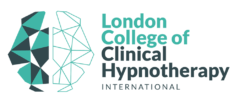Being a therapist entails not only professional competence but also personal integrity
and congruency. In the realm of therapy, congruency refers to the alignment between a
therapist’s personal life and their professional principles. While the significance of
congruency for effective therapy has been established, it is equally crucial to address
the ethical considerations and potential risks associated with therapists lacking
congruency. This article aims to explore the importance of congruency while shedding
light on the ethical implications and dangers of therapists not being congruent in their
personal lives, affecting both clients and colleagues.
Building Trust and Maintaining Ethical Standards:
Congruency forms the foundation of a trusting therapeutic relationship, not only with
clients but also among colleagues. When therapists are congruent in their personal
lives, it enhances their credibility and authenticity, fostering trust and respect.
However, incongruence among therapists can lead to strained relationships and erode
trust within the professional community. In turn, this can negatively impact
collaboration, consultation, and the overall well-being of both clients and colleagues.
Conflicting Values and Professional Collaboration:
Therapists often work in teams or collaborate with colleagues to provide
comprehensive care for clients. Incongruence in a therapist’s personal life can create
value conflicts and hinder effective collaboration. Divergent values and beliefs among
therapists can result in disagreements, reduced cohesion, and compromised treatment plans. Incongruent therapists may struggle to align with shared goals and evidence-
based practices, impeding the delivery of high-quality care.
Professional Reputation and Ethical Responsibility:
Incongruence in a therapist’s personal life can have far-reaching consequences beyond
the therapeutic relationship. Colleagues may become aware of discrepancies between
a therapist’s professional persona and their personal conduct, leading to reputational
damage and erosion of professional credibility. Therapists have an ethical responsibility to uphold the integrity of their profession and maintain high standards of
ethical conduct both within and outside their practice. Lack of congruency can not only
harm personal relationships but also tarnish the reputation of the entire profession.
Impact on Colleague Well-being:
Incongruence among therapists can also negatively impact the well-being of
colleagues. When therapists exhibit incongruent behavior, it can create a toxic work
environment characterized by distrust and discord. Colleagues may feel betrayed or
disillusioned when they witness a discrepancy between a therapist’s personal life and
their professional image. This can lead to increased stress, decreased job satisfaction,
and even burnout among colleagues. A harmonious and supportive work environment
is essential for the well-being and effectiveness of the entire team.
Influence on New Practitioners:
Incongruence in the personal lives of experienced therapists can have a profound
impact on new practitioners entering the field. Aspiring therapists often look up to
experienced professionals as role models and seek guidance from them. Incongruent
behavior exhibited by senior therapists can create confusion, disillusionment, and
doubt in the minds of newcomers. This can hinder their professional growth, weaken
their commitment to ethical practice, and potentially perpetuate a cycle of
incongruence within the field.
Conclusion:
Congruency is not only vital for effective therapy but also for maintaining trust, ethical
standards, and a healthy work environment among colleagues. Therapists must
recognize the ethical considerations and risks associated with incongruence in their
personal lives, affecting both clients and colleagues. By striving for congruency,
therapists can build and maintain trusting relationships, promote collaboration, and
protect the well-being of both clients and colleagues. It is through congruency that
therapists can contribute to a positive professional community, uphold the highest
standards of ethical practice, and foster a culture of integrity and authenticity within
the field.

